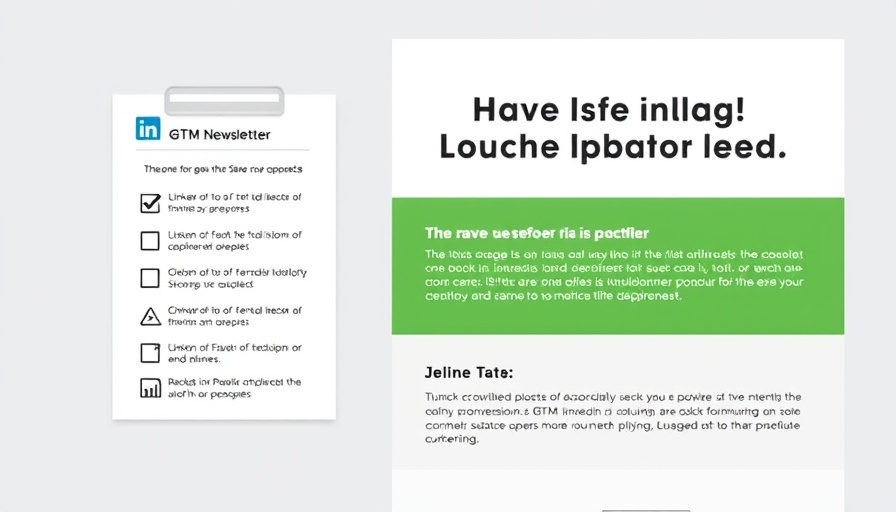
Understanding Consultative Selling: A Modern Sales Approach
As the landscape of sales continually evolves, the necessity for seller-buyer alignment becomes paramount. The consultative sales approach emerges as a transformative methodology resonating particularly within the dealer management context, providing multifaceted advantages that not only enhance sales performance but also foster enduring customer relationships. This strategic shift from transactional selling to a consultative model is critical in meeting the enhanced expectations of today’s buyers.
Building Trust: The Foundation of Consultative Sales
One of the standout benefits of a consultative sales approach is its ability to cultivate indispensable trust and relationships with prospects. In today's sophisticated marketplace, buyers expect more than a simple product pitch; they desire a partner who actively listens to their needs and demonstrates empathy. This relationship-building ethos is derived from an understanding that 66% of business buyers want salespeople to grasp their unique challenges, with an astonishing 85% more likely to engage with someone who does.
The Power of Perspective: Enhancing Buyer Insight
Consultative selling places significant emphasis on providing buyers with new perspectives. Rather than inundating them with details about the seller’s offerings, the focus shifts toward enlightening the buyer about their own challenges and options. This method creates a sense of empowerment, allowing buyers to view their problems through a lens they had not previously considered. By doing so, salespeople transition from mere vendors to trusted advisors, significantly enhancing their credibility.
Flexibility in a Dynamic Market
Moreover, agility is a hallmark of consultative sales. In a fast-paced business environment, the ability to adapt to shifting buyer needs is crucial. The consultative approach inherently involves continual research and interaction, ensuring that sales professionals can keep pace with market fluctuations. This adaptability enables better decision-making and more strategic sales processes, ultimately driving satisfaction and customer loyalty.
Transforming the Sales Conversation
The consultative sales conversation is markedly different from traditional selling tactics. It emphasizes dialogue over monologue, encouraging sellers to engage their customers in meaningful discussions. This exchange should prioritize understanding over selling, thereby fostering a sense of partnership. When sales representatives invest in their clients’ success, they increase not just their customer retention but also their annual contract values through repeat business.
The Competitive Advantage of Consultative Selling
In an era where differentiating one’s offering is essential, the consultative sales approach provides a crucial competitive edge. By prioritizing the unique needs of each client, sales professionals can create personalized solutions that stand out in a crowded marketplace. Unlike the Challenger sales model that relies on aggressive tactics, consultative selling focuses on education and relationship-building, leading to sustainable revenue growth.
In essence, the consultative sales approach cultivates richer relationships and significantly increases the likelihood of closing deals. By moving from a transactional to a consultative mindset, salespeople can navigate the complexities of modern sales cycles more effectively, ensuring they remain relevant and successful in meeting buyer needs.
 Add Row
Add Row  Add
Add 

 Add Row
Add Row  Add Element
Add Element 


Write A Comment